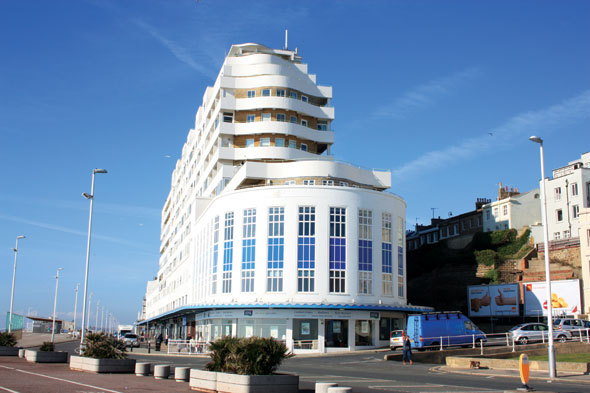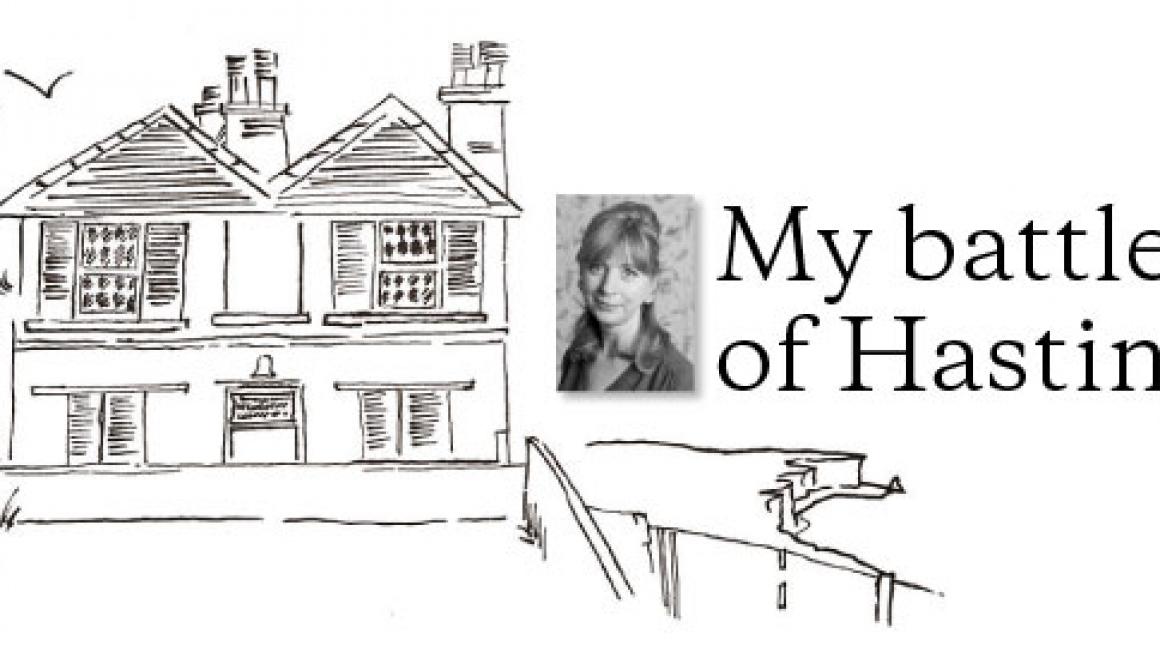Marine Court
As you approach from Hastings, it looms, like a ship about to set sail, which was exactly the look modernist architects Kenneth Dalgleish and Roger K Pullen were looking for. With nothing between it and the waves, residents say that in a storm, they feel they might actually be cast adrift.

The design was skilful, and graceful, with the eastern tip shaped to imitate the curved, stacked front of a liner and the south-facing elevation covered in balconies. The higher up you go, the more stepped back (and bigger) the balconies. The pinnacle is a vast terraced space, once a roof-top bar, designed for the entertainment of the holidaying guests, now sadly given over to boilers and pipe works.
The 153 flats also had the use of three restaurants and a nightclub, which in the 1960s was christened The Cobweb, with performances by David Bowie and Jimi Hendrix. Those escaping the city fug would decamp for the summer season, housing their servants in cramped quarters to the rear of the building. Meals could be sent up or snacks prepared in one of the compact kitchens.
 Beached: Marine Court
Beached: Marine CourtIts notoriety was short lived, with war arriving two years after it opened. The building was covered in camouflage to deter enemy bombers from mistaking it for an actual ship but it took several hits, although its innovative steel-frame construction generally stood firm.
But where the Luftwaffe failed, decades of poor management have succeeded. The building now looks sad and ready for the scrapyard, its original design compromised by dodgy DIY and the glazing in of some balconies. Residents now face rising maintenance costs, with the result that many are deciding to sell rather than pay service charges of £5,000 per year. And I thought I had problems.
Next week: Scaffolding



